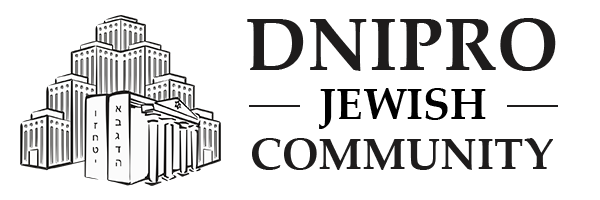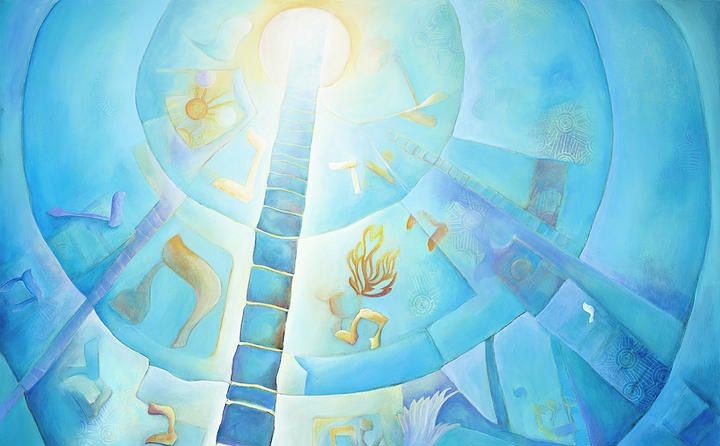Perhaps the most famous and well-known Jewish prayer in the world is Kol Nidre, which opens the prayers for Yom Kippur, the most solemn and important day of the Jewish calendar. Synagogues around the world are packed—for even if a Jew hasn’t set foot in synagogue all year, they’ll certainly come for Kol Nidre. There’s no more important day than Yom Kippur, and no more important prayer than Kol Nidre and Ne’ila (the final prayer of Yom Kippur).
In Dnipro, in 2025, Kol Nidre will be held on Wednesday, October 1, at 6:30 PM.
The essence of this prayer is a declaration that if anyone expresses anything verbally or in deeds that is incompatible with the Jewish worldview, everyone must know that this is not in line with their true intentions, that it is merely for show, and that it is done under external pressure—social or otherwise. However, a person’s soul is completely devoted to God and His Torah—and they are forced, against their will, to act hypocritically under the pressure of circumstances…
The Kol Nidrei prayer, and apparently its beautiful melody, originated during the Inquisition in Spain. At that time, there were Jews who, out of fear of the hell of the Inquisition, converted to Christianity for show. They did not stand the test, did not ascend the altar of their faith, but they nonetheless retained enough courage to gather once a year, on Yom Kippur, in basements and other secluded places and there, with solemn and mournful prayers, express their release from the vows imposed upon them by circumstances: throughout the year, we cannot fulfill the 613 commandments of the Torah and are forced to outwardly behave as Christians – but know this: we renounce in advance all words and deeds contrary to the Jewish faith, which circumstances may force us to commit throughout the year – from this Yom Kippur until the next. We were and remain Jews!
We repeat this moving, heartfelt prayer even now. Just as, when releasing one from vows, the “beit din” repeats three times, “You are released, you are released, you are released,” so the chazan and the entire congregation repeat the Kol Nidrei prayer three times: first quietly, almost in a whisper, then louder, and finally, in a full voice: “Vows are not vows, prohibitions are not prohibitions, oaths are not oaths.”
And again three times, as when releasing one from vows, the congregation proclaims: “And the whole congregation of the children of Israel and the proselytes living among them will be forgiven—for all the people knew not what they did!” Then follows the verse from the Torah: “And the Lord said, ‘I have forgiven at your request!'”—also three times.
Rabbi Eliyahu Ki Tov explains the meaning of this prayer: “On Yom Kippur, a person must cleanse himself from sins. For certain sins, the Kol Nidrei prayer helps. If a person made a vow last year, Yom Kippur does not exempt them from fulfilling it. Failure to fulfill a vow is a grave sin. What should one do if they have forgotten a vow? In such a case, only the absolution of the vow can help. Therefore, before Yom Kippur, the community absolves all vows that a person might fail to fulfill in the coming year. Thus, on the Day of Repentance, Jews are freed from this sin.
The sin of failing to fulfill a vow is extremely serious and entails severe punishment. The Torah takes verbal sins very seriously, punishing them more severely than many sinful acts, because man differs from animals primarily in his ability to speak, and by abusing this gift, he becomes worse than an animal, which is incapable of defiling its lips. Therefore, our sages introduced the custom of reciting Kol Nidrei.
The words, “By the permission of the Almighty… we permit prayer with the transgressors,” recited before Kol Nidrei, were introduced into the prayer during the persecution of Jews in Spain. These words are still recited today, for even today, on Yom Kippur, people tainted with many sins come to the synagogue, and their proximity could undermine the prayers of the righteous. But because we ask for and receive permission to pray together, this does not happen; rather, the prayers of the wicked ascend to the Throne of the Almighty alongside the prayers of the righteous. For we are all descendants of Abraham, Isaac, and Jacob, and we all desire to fulfill the will of the Almighty. The union of the prayers of the righteous and the wicked on Yom Kippur is similar to the mingling of the various fragrances during the incense offerings in the Temple.
Our sages said: “A fast in which hardened sinners do not participate is not a fast.” (Babylonian Talmud, Tractate Kritot, 6) “From this we see that it is necessary to include sinners in all our fasts and prayers” (Rashi).
Here’s how to say Kol Nidrei:
The cantor stands at the dais, and those holding the Torah scrolls stand to his right and left, assisting him, as it says in the Torah (concerning Moses’ prayer during the battle with Amalek): “…and Aaron and Hur supported his hands, each on his side” (Exodus 17).
The point is also that vows are absolved by three people. Therefore, all three say: “By the permission of the Almighty and by the permission of the congregation, the heavenly Assembly and the earthly Assembly, we permit prayer together with those who have transgressed the laws.” These words are repeated three times.
Then the cantor recites Kol Nidrei three times.
The first time, he recites the words of the prayer in a quiet voice, but loud enough for the congregation to hear him. The second time, he recites louder, and the third, louder still. He must pray with reverence and concentration.
In many congregations, the congregation repeats the words of the prayer after the cantor.
After completing the Kol Nidrei, the cantor (followed by the entire congregation) recites the following verses three times: “May all the congregation of the Children of Israel be forgiven…,” “Forgive the sin of this people,” and then “I forgive according to your word.”
After this, the blessing She’echeyanu (“Who has enabled us to live…”) is recited (by the cantor aloud and the congregation whispering). It emphasizes the joyful nature of the day that has begun, in which we can fulfill the mitzvah and atone for all our sins.
The congregation should finish the blessing slightly before the cantor and respond with “Amen,” as it is not permissible to say “Amen” after one’s own blessing.
In Dnipro, in 2025, Kol Nidre will be held on Wednesday, October 1, at 6:30 PM.




